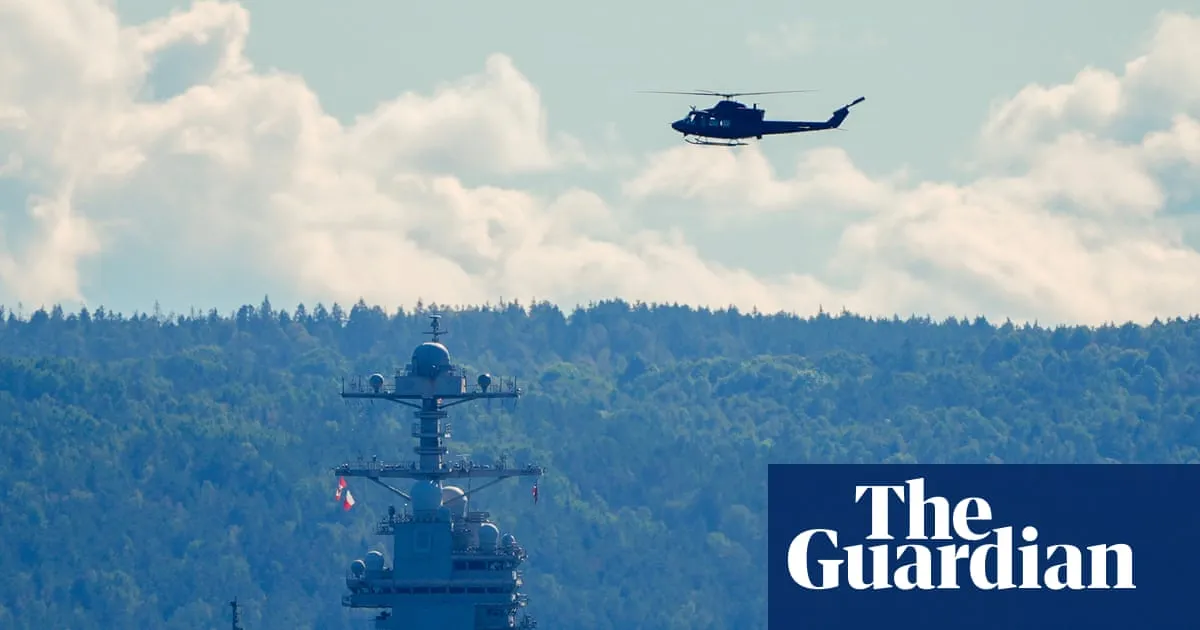
On Friday, the Pentagon announced the deployment of the United States's most advanced aircraft carrier, the USS Gerald Ford, to the Caribbean. This significant move marks a major escalation in the Trump administration's ongoing war against drug cartels. The deployment enhances the U.S. military's capabilities, enabling it to conduct strikes against ground targets associated with drug trafficking.
The USS Gerald Ford, equipped with dozens of stealth fighter jets and surveillance aircraft, will join other warships off the coast of Venezuela as it concludes its current deployment in the Mediterranean. This deployment is the clearest indication yet that the Trump administration plans to significantly expand the scope of its military campaign. Previously focused on intercepting small boats believed to be transporting drugs to the U.S., this new strategy aims to target drug-related operations on land.
The carrier strike group, which includes numerous F-35 fighter jets, significantly increases the U.S. military's firepower and its ability to engage air-defense systems in Venezuela. According to current and former officials, this would pave the way for U.S. special operations forces or drones to destroy land-based targets. Sean Parnell, a Pentagon spokesperson, stated that the expanded naval presence “will bolster U.S. capacity to detect, monitor, and disrupt illicit actors and activities that compromise the safety and prosperity of the United States homeland and our security in the western hemisphere.”
In recent weeks, the Trump administration has been intensifying its campaign against drug cartels and seeking to destabilize the Venezuelan government led by President Nicolás Maduro. This follows a series of military strikes on at least nine alleged drug-trafficking boats. During a recent press conference at the White House, President Donald Trump confirmed that the next phase of the military campaign would involve targeting land-based operations. “The land is going to be next,” Trump stated. “The land drugs are much more dangerous for them. It’s going to be much more dangerous. You’ll be seeing that soon.”
While Trump did not specify which targets the U.S. intended to strike, he instructed Defense Secretary Pete Hegseth, who was present during the announcement, to inform Congress of the administration's plans to combat illegal drug trafficking. When asked whether he would declare war against the cartels, Trump suggested a strategy of targeted strikes. “I think we’re just going to kill people that are bringing drugs into our country, OK?” he asserted. “We’re going to kill them, you know they’re going to be, like, dead.”
The military campaign against drug cartels began with what Trump characterized as the first strike on a boat on September 3, accompanied by a brief video of the attack. Subsequent strikes followed, with the administration confirming casualties but providing limited details about the operations. Since the campaign's inception, the administration has employed a controversial legal rationale for these strikes, claiming the boats are linked to “designated terrorist organizations” (DTOs), thereby positioning the U.S. in a “non-international armed conflict.” However, concrete evidence proving that those targeted were actively smuggling drugs to the U.S. remains unsubstantiated.
In briefings to Congress, Pentagon officials indicated that the boats were deemed legitimate targets based on Trump's designation of them as assets of cartels recognized as DTOs. This controversial approach raises questions about the legality and effectiveness of the current military strategy in combating drug trafficking and protecting national security.